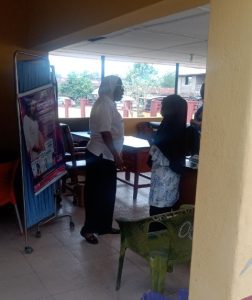In Osogbo, Osun state capital, an increasing number of women are turning to family planning to cope with economic pressures and manage family resources.
Rising prices, particularly of essential goods like rice, have prompted these women, along with their spouses, to seek ways to ensure they can support their families without the additional burden of unplanned pregnancies.
Adegoke Tawa, a local resident and mother, has relied on the injectable method of family planning for over five years.
She shared that the method has had no side effects for her, allowing her to focus on raising her current children without worry.
“Family planning has made it easier for me to care for my children. If I ever decide to have more, I can come back to the hospital, but for now, I am content,” she said in an interview with Family Planning media stakeholders, on Thursday, October 31st.
For Kazeem Latifat, the choice came after seven pregnancies. Her husband fully supported her decision, even offering to accompany her to the clinic. “Enough is enough,” she said.
“We both agreed that seven children are enough, and my husband wanted to make sure we found a suitable solution.”
Similarly, Rukayat Adebayo noted how economic strains influenced her decision.
“In Tinubu’s regime, rice has become so expensive. We need to focus on what we have,” she explained. After experimenting with different family planning methods, she now relies on the injection method, which she finds effective and manageable.

However, Mrs. Omolaja Adenike Suliyat, a family planning service provider at Okebale Primary Education, noted a significant shift in the community’s acceptance of family planning. In the past, she explained, people hesitated to embrace family planning due to concerns about side effects and misunderstandings about the methods. However, recent awareness efforts have helped change these perceptions.
“We’ve created awareness, and now people have more knowledge about family planning,” Mrs. Omolaja said. “They understand its importance and are informed about potential side effects and how to manage them. This knowledge has led to a noticeable increase in those coming forward for family planning.”
She emphasized that her team regularly mobilizes staff to educate women, particularly during clinics and immunization sessions, on family planning’s benefits, various methods, and effective management of side effects.




